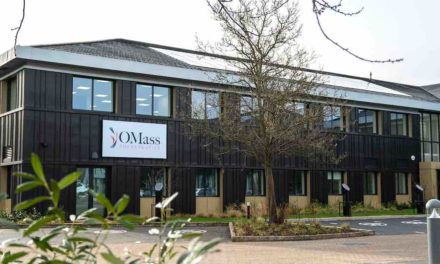John Dingle and Debbie Brett, partners in Blandy & Blandy solicitors’ commercial property and corporate & commercial teams, explain the findings of the firm’s recent survey looking at the response of SMEs in the Thames Valley to the Covid-19 pandemic and the economic outlook.
Two thirds of companies in the Thames Valley expect at least a 50 per cent increase in homeworking over the long-term, as a result of the pandemic, according to a survey by Blandy & Blandy.
However, only 18 per cent of companies said this will lead to them requiring less office or commercial space in the future.
Property was not a key concern for companies with cashflow highlighted as the number one challenge, followed by their employees, meeting customers’ expectations, supply chain problems, protecting their organisations’ reputations and maintaining financial stability all cited as more pressing issues.
John Dingle said: “It is positive for the Thames Valley’s normally buoyant property market that the majority of companies do not expect events this year to affect their longer-term needs for office and commercial space.
“Reading is a fantastic place to be located and to do business, with a number of major developments in the pipeline, such as Station Hill, and the completion of Crossrail on the horizon.
“There is a growing expectation that both employers and employees will relocate from London to areas such as Reading and the wider Thames Valley as homeworking and hybrid work arrangements – such as the ‘hub and spoke’ model – become more widespread, which would result in more good news for the region.”
Ninety-three per cent of companies surveyed felt the Government had provided enough support to businesses and their owners during the pandemic, including through the Coronavirus Job Retention (furlough) Scheme.
More than half of employers had placed up to a quarter of their staff on furlough leave since March, while 25 per cent had furloughed more than half of their workforce.
Exhibiting a degree of confidence in the market, one third of companies did not expect consumer demand for their products or services to change, while 37 per cent actually believe they will experience increased demand. 33 per cent anticipate a fall in demand as a result of an extended period of lockdown and amidst the ongoing economic uncertainty.
Businesses did, however, signal the significant impact that the pandemic has had on their turnover, with 70 per cent pointing to a fall in their income. This led one in five respondents to consider the future viability of their business to be threatened.
Debbie Brett concluded: “Periods of rapid economic change and uncertainty are often also times of significant innovation and an opportunity for companies, their owners and management teams to refocus and to reassess everything their business is doing, how and why.
“Whilst the past few months will no doubt have impacted enormously on many companies, especially in relation to their incomes and their staff, it is extremely positive that businesses are looking forward with a degree of, perhaps cautious, optimism.”
For further information or legal advice, please visit www.blandy.co.uk.
© Thames Tap No 219 (powered by ukpropertyforums.com).
Please rate this article out of five stars below. You can comment too, using the form at the bottom of the page.


















